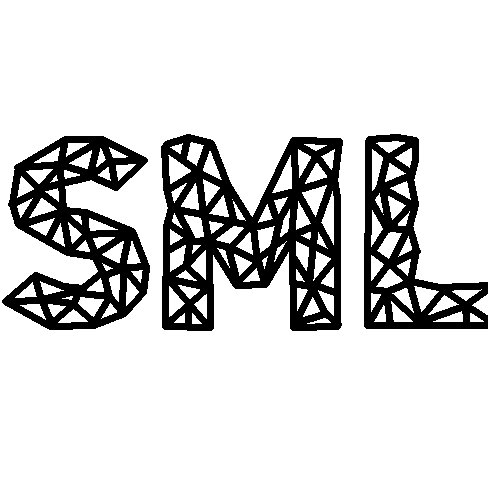
jeff hancock
@jeffhancock
Followers
2K
Following
685
Media
7
Statuses
290
🚨📬 New paper out in @NatureHumBehav w/ @RyanMooreComm and @Ross_Dahlke. How many Americans were exposed to misinformation during the 2020 election? . We find that 26.2% of Americans were exposed in 2020 compared to 44.3% during the 2016 election. 🧵👇.
20
43
102
Excited to have appeared on the #HappinessLabPod, from @PushkinPods, talking to Dr.@LaurieSantos about how other people's emotions can make us feel happier, and how social media complicates this. Listen at
0
2
18
Stanford's press release about our preprint paper on how different age groups reacted to COVID19 and why people did not comply with social distancing orders, with great collaborators @EleniLinos Angela Lee @rycoka and Meghan Halley
0
5
9
@BerkeleyISchool @Stanford @GoldmanSchool @CLTCBerkeley I'm honored to be part of this series and excited to talk about what deception detection research can tell us about misinformation, including work with @RyanMooreComm & @Ross_Dahlke on exposure, effects, truth bias and some solutions.
0
2
8
Building on work from @andyguess @BrendanNyhan @JasonReifler on the 2016 election, we collected mobile and desktop web browsing data and combined it with a list of misinformation websites from the 2016 paper and @NewsGuardRating to identify misinformation exposures.
1
0
7
Adam Kramer, Jamie Guillory and I just published our paper on emotional contagion on Facebook http://t.co/L3BBFEce9W
@KegsnEggs.
1
0
6
@DrJBhattacharya @MikeBenzCyber Censorship mercenary army! Hadn’t heard that one before. And Jay … headshaker.
3
0
2
@Sacha_Altay Thanks Sacha. Your study is great, and yes while slightly different we agree on the higher level takeaway of the prevalence of misinformation.
1
0
2
looks like emoji's aren't the cure for the "emotion gap" of text. i still think words work pretty well.
New study on the interpretation of emjois: #sucomm121.
0
3
3
@modern_psyche @BllocPhone @StanfordSML @StanfordHAI @OpenAI Great piece! Really liked the framing and the questions you ask around GPT3. Plus great graphics 😃.
0
0
3
Here's a free online course for seniors on fighting disinformation put together by @MediaWise. Our preliminary analysis indicates it can really help people improve their detection of disinformation!.
0
0
3
@blikstad_balas @csadaba @zlorine Worried but hopeful with all of you on the case! So great to finally meet everyone.
0
0
2
Looking forward to this conversation!.
Does "screen time" get a bad rap? What do we know about mental health, wellness & tech as we navigate #covid19? Join @Stanford_Cyber, @ericapelavin, @OrbenAmy, @jeffhancock, @KellyKborn 7/1 at 10am PST to explore. Open to all. Register now:
0
0
3
@tuliodaza @StanfordCyber @StanfordHAI Thanks for sharing the paper. Looks really interesting - I've got it in the queue to read!.
0
0
1
I'm often asked about how tell if something is real or fake on social media. @dfreelon pointed this thread out to me, with some great advice and resources.
how do you determine if a source is “credible?” well, it's an incredibly complex question. you need to understand the outlet and author's track record, their editorial process, associations, funding, audiences (market), critiques, and the influence of their work, for starters.
0
1
2
@bowmanspartan @MasurPhil @meganrfrench Let's talk Nick. And to be clear our meta-analysis shows the same positive direction (more social media use, more depression). We had reverse-coded for negative well-being. Very glad to see we're getting the same direction (though our effect remains pretty small) @sunnyliu2005.
1
0
2
Congrats SUSML on the official opening! Its a beautiful space. Wish I was there :).
Are you coming to the @CornellUCOMM Grand Opening celebration today? Stop by and say hi to the SML in room 491!.
0
2
2
@PsychFriend It was great meeting you and seeing your poster Catherine! Hope you made the train.
1
0
2
@ZuercherJohn nice point. I hadn't thought of that. Clark's overall point, though, is that language in typically developing kids is natural so long as they interact with adults speaking language. Compare that to how long it takes to learn to read and write!.
0
0
1
@stats_tipton @chrisjb1 Fantastic thread @stats_tipton. Really appreciated your take not only on these two MAs but also best practices, especially on figuring out heterogeneity. Major issue on social media effects too.
0
0
1
@Comm1Class I actually thought it would be lower! Makes me wonder what is "high" and what is "low" for lying rates.
0
0
1
@lara_schreurs @Stanford Its been lovely having you in the lab! I'm amazed at how much you and Angela Lee have accomplished already!.
0
0
1
@imhenryliera this is a super common question/concern when we talk about deception and social media. to be discussed in class!.
0
0
1
@alexleavitt Sorry to hear it Alex. Visit us at Stanford when you're back and ready - we'd love to have you come and speak to our group about your experience.
0
0
1
@tdienlin @GerineLodder @niclas_kuper @OrbenAmy @BueckerSusanne @PNASNews @mscharkow Couldn’t agree more on both points. I think most of our field has missed the content/context in assessing use.
1
0
0
@WIRED's excellent feature on the 3 days in America that changed how we think about police, #BlackLivesMatters and social media.
1
0
1
@stanny_hhoang Most important is understanding the elements of each study, and not trying to figure out how they are related. So don't worry about that, instead focus on knowing the 3 perspectives from Ho, Miner & Hancock, the key findings from Burke & Kraut, and the idea/model from Verduyn.
1
0
1
@KobiHackenburg @jayvanbavel @GaryMarcus @mer__edith @random_walker @emollick @Miles_Brundage Wow, great paper Kobi! We'll discuss in our lab meeting this week. I was surprised that the microtargeting didn't work (the general persuasiveness did not - it's really good at it)! Curious to dig in and learn more. Congrats on this work.
2
0
1
@azizansari We're reading your book in our Stanford Digital Deception class - we'd love to have you skype in and discuss! Any interest?.
0
0
1
@jayvanbavel Great point and question @jayvanbavel - we'd consider that misinformation that happened primarily after the election, no not part of our study.
0
0
1
@scong121 Walther would say, and argued in class, that no idealization is not about being less authentic, just part of online dynamics.
0
0
1
@jofish @ianbicking @harraton @abewallin Really sorry to hear it Jofish. You did great work there with your team. Whenever you're ready for a socially distanced whiskey let me know.
0
0
1










